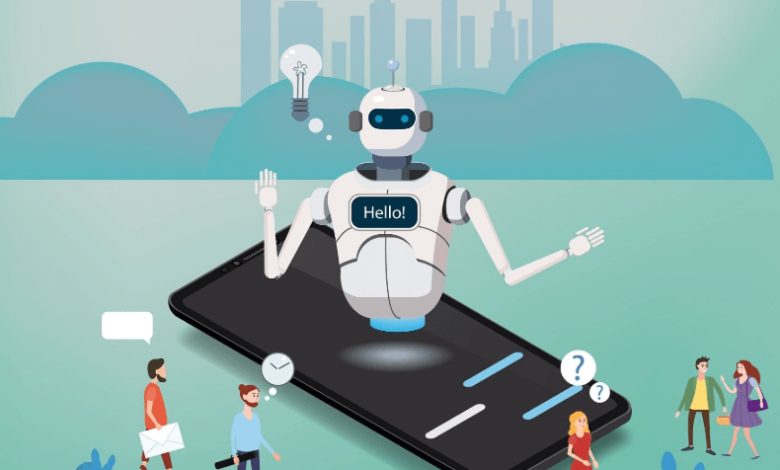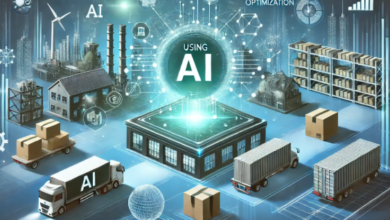AI-Powered Chatbots in Customer Support and Service

AI-powered chatbots have revolutionized customer support and service, redefining how businesses interact with their customers. By leveraging artificial intelligence, these virtual assistants offer instant, personalized, and efficient solutions to customer queries, significantly enhancing the user experience. From answering routine questions to resolving complex issues, chatbots are becoming indispensable tools for businesses seeking to optimize their operations and maintain a competitive edge.
The Rise of AI-Powered Chatbots
The rise of AI-powered chatbots can be attributed to advancements in natural language processing (NLP), machine learning, and data analytics. These technologies have enabled chatbots to understand and respond to human language with remarkable accuracy and context awareness. Unlike traditional rule-based bots, AI chatbots continuously learn and adapt, improving their performance over time.
Businesses across industries are adopting chatbots to meet the growing demand for 24/7 customer support. By automating repetitive tasks and streamlining communication, chatbots not only enhance customer satisfaction but also reduce operational costs.
Benefits of AI-Powered Chatbots in Customer Support
AI-powered chatbots offer a host of benefits that make them invaluable in customer service:
- 24/7 Availability: Chatbots provide round-the-clock support, ensuring customers receive assistance whenever they need it. This continuous availability enhances customer loyalty and reduces frustration.
- Instant Responses: Unlike human agents who may take time to respond, chatbots deliver immediate answers to queries, significantly improving response times.
- Personalized Interactions: By analyzing customer data and preferences, chatbots tailor their responses to individual users, creating a more personalized experience.
- Cost-Effectiveness: Automating routine inquiries reduces the workload on human agents, lowering staffing costs and increasing efficiency.
- Scalability: Chatbots can handle thousands of interactions simultaneously, making them ideal for businesses experiencing high volumes of customer queries.
- Multilingual Support: AI-powered chatbots often support multiple languages, enabling businesses to cater to a global audience.
Applications of AI Chatbots in Customer Service
The versatility of AI chatbots makes them suitable for a wide range of applications in customer service:
- Handling FAQs: Chatbots efficiently manage frequently asked questions, providing accurate and consistent answers to common queries.
- Order Tracking and Management: Customers can check the status of their orders, make changes, or request refunds through chatbots, simplifying the process.
- Technical Support: AI-powered chatbots troubleshoot basic technical issues, guiding customers through solutions step by step.
- Lead Generation and Sales: Chatbots engage potential customers, recommend products, and guide them through the purchasing process.
- Appointment Scheduling: Businesses use chatbots to book, modify, and remind customers about appointments, reducing scheduling conflicts.
Enhancing the Customer Experience
AI-powered chatbots play a crucial role in improving the overall customer experience. By offering seamless and intuitive interactions, they reduce wait times and frustration. Chatbots also collect and analyze feedback, helping businesses identify areas for improvement and refine their services.
Proactive support is another area where chatbots excel. By monitoring user behavior, they can anticipate customer needs and offer assistance before problems arise. For instance, an e-commerce chatbot might suggest products based on browsing history or offer troubleshooting tips for frequently encountered issues.
Integration with Other Technologies
The integration of AI-powered chatbots with other technologies amplifies their potential. When combined with customer relationship management (CRM) systems, chatbots provide agents with comprehensive customer profiles, ensuring smoother transitions when human intervention is required.
Voice recognition technology enhances accessibility by enabling voice-based interactions, making support services more inclusive. Chatbots integrated with augmented reality (AR) can provide visual assistance, such as guiding users through assembling products or troubleshooting devices.
Overcoming Challenges in AI Chatbot Implementation
While AI-powered chatbots offer numerous advantages, their implementation comes with challenges. One common issue is the difficulty in understanding complex or ambiguous queries, which may lead to incorrect responses. Regular updates and training are essential to ensure chatbots remain accurate and effective.
Maintaining a balance between automation and the human touch is another challenge. While chatbots are highly efficient, some customers prefer interacting with human agents for more nuanced or emotional issues. Businesses must design seamless escalation processes to transition users to human support when necessary.
Data security and privacy concerns are critical when deploying AI chatbots. Organizations must comply with regulations like GDPR and ensure that customer data is encrypted and protected against breaches.
The Future of AI-Powered Chatbots in Customer Support
The future of AI-powered chatbots in customer support looks promising, with continued advancements in AI and related technologies. Chatbots are expected to become even more intuitive, capable of understanding emotions and context to provide empathetic and contextually relevant responses.
Hyper-personalization will become a key trend as chatbots leverage AI to offer highly customized experiences based on individual preferences and behavior. The integration of chatbots with the Internet of Things (IoT) will enable them to interact with smart devices, opening new possibilities for customer support.
As businesses continue to innovate, AI-powered chatbots will play a central role in redefining customer service standards. Their ability to provide efficient, personalized, and scalable solutions ensures their relevance in a digital-first world.
Conclusion
AI-powered chatbots have become indispensable in modern customer support and service, offering unparalleled convenience, efficiency, and scalability. By automating routine tasks, providing personalized interactions, and ensuring 24/7 availability, these intelligent tools enhance the customer experience while optimizing business operations. As AI technology continues to evolve, chatbots will only become more capable and integral to the future of customer service. Businesses that embrace this innovation stand to gain a significant competitive advantage in today’s fast-paced, customer-centric landscape.




